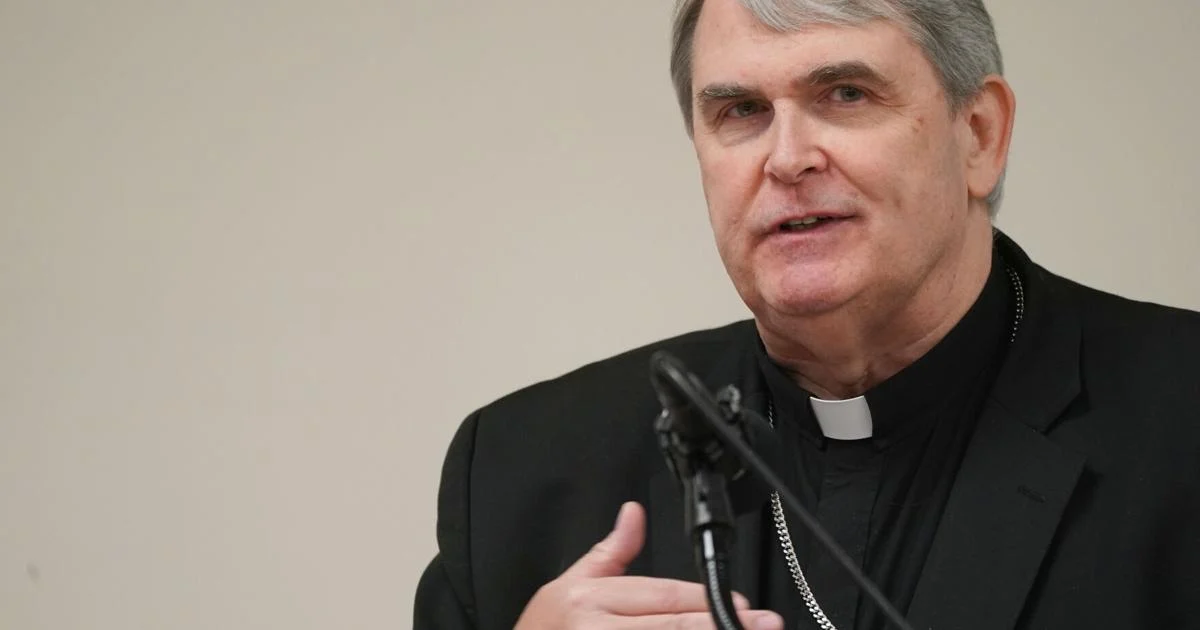
The Buffalo Diocese, still seeking enough funds to fulfill a $150 million settlement with child sex abuse victims and exit federal bankruptcy, is at odds with a private charitable foundation that was established to benefit Catholic causes in Western New York over whether the foundation’s money can be used toward the settlement.
Lawyers for the Foundation for the Roman Catholic Diocese of Buffalo, which has assets of more than $70 million, contend that all the foundation money is restricted and thus may not be used toward the settlement.
Diocese officials have asked the foundation for $15 million, but so far, the foundation has declined to provide anything, according to court papers filed in U.S. Bankruptcy Court for the Western District of New York.
Some other non-debtor Catholic entities, including Catholic Charities and Catholic Cemeteries, both of which are separate nonprofit organizations, have contributed to the settlement. Most of the $150 million will come from the diocese’s 160 parishes, which have been asked to turn over up to 80% of their unrestricted savings for the settlement.
The foundation and the diocese are also still battling in Erie County Surrogate’s Court over a $2 million donation from Frank J. McGuire, a wealthy local business leader who died in 2020. McGuire’s estate, estimated at $5.4 million, has been mired in court proceedings for nearly five years. His will included a $2 million bequest that both the diocese and the foundation are trying to claim.
The rancor between the diocese and the foundation is highly unusual given that Bishop Michael W. Fisher, the leader of more than 500,000 Catholics in eight counties that make up the diocese, serves as chairman of the foundation’s board, which also includes as board members the Rev. Peter Karalus, who as vicar general serves as second in command of the diocese, and Melissa Potzler, the diocese’s chancellor, another high-ranking executive post.
Bankruptcy court filings this week and a hearing on Thursday afternoon revealed the depth of the rift.
Attorney Raymond L. Fink, who represents the foundation, accused the diocese and its attorneys of trying to manipulate the foundation’s governance structure and internal processes and protocols to get at its restricted assets.
Fink said the foundation continues to solicit donations from numerous sources to benefit Catholic education, clergy development and other religious objectives, and it has publicly assured donors that their gifts would not be used to pay a settlement of claims.
Fink raised concerns in court papers objecting to a diocese request to retain the Jones Day law firm to advise on legal issues related to “the potential use of certain funds held by the Foundation.”
“Since the Foundation has its own independent legal counsel … there is no justifiable basis for the Diocese to pursue a so-called review of the Foundation’s governance matters or perform an analysis of its restricted funds,” Fink said in court papers.
Listen now and subscribe: Apple Podcasts | Spotify | RSS Feed | SoundStack | All Of Our Podcasts
Chief Judge Carl L. Bucki, who is presiding over the diocese’s Chapter 11 proceedings, also expressed skepticism about the request to retain Jones Day for legal issues related to an organization that is not a debtor in the case.
“They’re a separate entity. Why should the diocese be spending any money to provide guidance on the legal limitations of what a different entity can or cannot do?” Bucki asked before granting an adjournment of a more thorough hearing on the matter until Oct. 9.
Fink noted that the foundation board “for the most part” consists of “truly independent people who are not under the control or influence of the Diocese” and that trustees who may have “conflicting loyalties” due to their vows of obedience to the bishop must recuse themselves in matters where such conflicts occur, per the foundation’s conflict-of-interest policy.
The policy, said Fink, “was designed and intended to assure that independent non-conflicted Trustees deliberate and vote upon matters concerning its internal and external affairs.”
Diocese Chief Operating Officer Richard Suchan asked the foundation as far back as Jan. 8, 2024, to pay the diocese $15 million toward a settlement fund, which was “categorically rejected” by the non-conflicted trustees, said Fink. Later that month, the board passed a resolution stating that none of its restricted assets could be used directly or indirectly to fund the settlement of sex abuse claims.
This past June, the board went a step further, passing a resolution rejecting “any present or future requests” for funding a settlement from the foundation’s unrestricted assets.
Fink said the diocese also directed five Catholic high schools to make grant requests to pay for the purchases of their respective buildings.
Those requests totaled $5 million, which Fink labeled a “scheme” to serve as an “indirect source of funds” toward settlement.
“The Conflict-of-Interest policy was invoked, and these requests to repurpose endowed and restricted funds were rejected by the Trustees,” he said.
The foundation also rejected a diocese request to disclaim the $2 million McGuire bequest so that it would go to the diocese. Foundation lawyers said the bequest was intended to fulfill McGuire’s outstanding pledge to the Upon This Rock campaign that was conducted by the foundation in 2015.
Fink said Potzler, the diocese’s chancellor, wrote a lengthy email to other foundation trustees on Sept. 11 that took issue with the implementation of the conflict-of-interest policy at recent meetings of the trustees.
Diocese attorney Andrew Rivera said the diocese needs to hire Jones Day because its main law firm, Bond Schoeneck King, has an attorney on staff who was involved in the formation of the foundation in 1996. As such, the firm might have a conflict of interest in trying to perform the services being sought from Jones Day, said Rivera.
Rivera said he sought an adjournment in part because some of Fink’s characterizations about the foundation may have revealed “confidential, privileged information” and deserved a written response.
Fink responded that nothing in his court filings constituted confidential information.
Get local news delivered to your inbox!
Subscribe to our Daily Headlines newsletter.
* I understand and agree that registration on or use of this site constitutes agreement to its user agreement and privacy policy.
Jay Tokasz
Reporter
Get email notifications on {{subject}} daily!
Your notification has been saved.
There was a problem saving your notification.
{{description}}
Email notifications are only sent once a day, and only if there are new matching items.
Followed notifications
Please log in to use this feature
Log In
Don’t have an account? Sign Up Today



